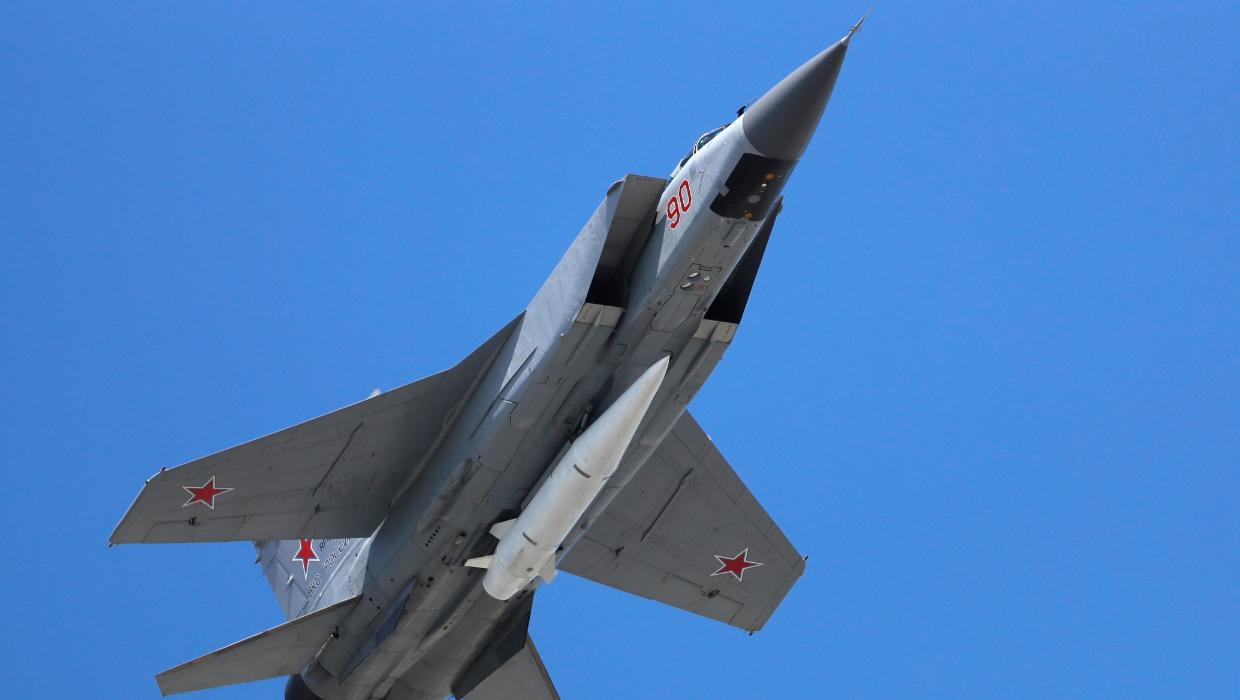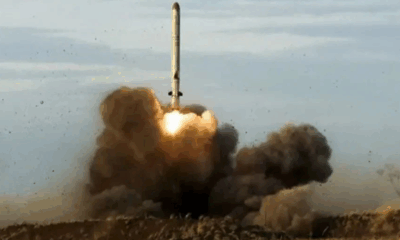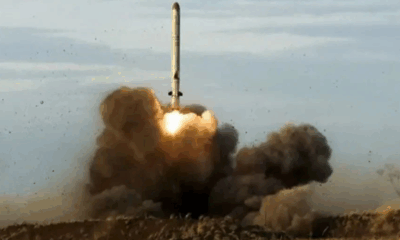Politics
Russian Jets Breach NATO Airspace in Latest Provocation

A series of Russian jets violated NATO airspace on March 15, 2024, in a provocative incident lasting approximately 12 minutes. The incursion, which occurred near the Baltic Sea, has raised concerns regarding NATO’s preparedness to handle airborne threats from Russia.
This incident marks the latest in a series of airspace violations that have tested the alliance’s response capabilities. NATO officials confirmed that the aircraft ignored multiple signals to alter their course, prompting immediate alerts among member states.
In a statement regarding the event, NATO Secretary General Jens Stoltenberg emphasized the alliance’s commitment to safeguarding its airspace. He stated, “NATO remains vigilant and ready to respond to any threats against our member states.” The organization has previously expressed concerns over increasing military activity by Russia in the region, especially following heightened geopolitical tensions.
The Russian jets, identified as Su-30 fighters, reportedly entered NATO airspace without prior notification. According to a NATO spokesperson, the violation was swiftly monitored, but no further military action was taken. This approach aligns with NATO’s protocol of de-escalation while maintaining a robust defensive posture.
Heightened Military Activity
The recent airspace breach adds to a growing pattern of military provocations by Russia in the vicinity of NATO borders. In 2023, the alliance documented over 100 incidents involving Russian aircraft entering its airspace. Such actions have prompted NATO to enhance its air patrols and increase surveillance in the region.
The Baltic Sea area has become a focal point for NATO’s defensive strategy, with numerous air and naval exercises conducted to demonstrate readiness. Member states, including Estonia, Latvia, and Lithuania, have expressed deep concern about the implications of these incursions for regional security.
Military analysts suggest that these maneuvers serve both as a show of strength by Russia and a test of NATO’s resolve. The ongoing situation underscores the delicate balance of power in Eastern Europe and the importance of maintaining a strong defense against potential threats.
Implications for NATO and International Relations
As tensions continue to rise, NATO’s response to airspace violations will likely play a critical role in shaping international relations. The organization’s ability to effectively manage such incidents is essential not only for the security of its member states but also for maintaining stability in the broader European landscape.
The alliance has called for diplomatic channels to address these provocations, urging Russia to adhere to international norms regarding airspace violations. The situation remains fluid, and NATO leaders are closely monitoring developments.
In conclusion, the March 15 incident serves as a stark reminder of the ongoing challenges faced by NATO in the Baltic region. As the alliance remains steadfast in its commitment to collective defense, the need for vigilance and preparedness against Russian military activities has never been more evident.
-

 Sports2 months ago
Sports2 months agoNetball New Zealand Stands Down Dame Noeline Taurua for Series
-

 Entertainment2 months ago
Entertainment2 months agoTributes Pour In for Lachlan Rofe, Reality Star, Dead at 47
-

 Entertainment4 weeks ago
Entertainment4 weeks agoNew ‘Maverick’ Chaser Joins Beat the Chasers Season Finale
-

 Sports6 days ago
Sports6 days agoEli Katoa Rushed to Hospital After Sideline Incident During Match
-

 Sports2 months ago
Sports2 months agoSilver Ferns Legend Laura Langman Criticizes Team’s Attitude
-

 Politics1 month ago
Politics1 month agoNetball NZ Calls for Respect Amid Dame Taurua’s Standoff
-

 Entertainment2 months ago
Entertainment2 months agoKhloe Kardashian Embraces Innovative Stem Cell Therapy in Mexico
-

 Sports4 days ago
Sports4 days agoJamie Melham Triumphs Over Husband Ben in Melbourne Cup Victory
-

 World3 months ago
World3 months agoPolice Arrest Multiple Individuals During Funeral for Zain Taikato-Fox
-

 Sports3 months ago
Sports3 months agoGaël Monfils Set to Defend ASB Classic Title in January 2026
-

 Entertainment1 month ago
Entertainment1 month agoTyson Fury’s Daughter Venezuela Gets Engaged at Birthday Bash
-

 Sports1 month ago
Sports1 month agoHeather McMahan Steps Down as Ryder Cup Host After Controversy





















